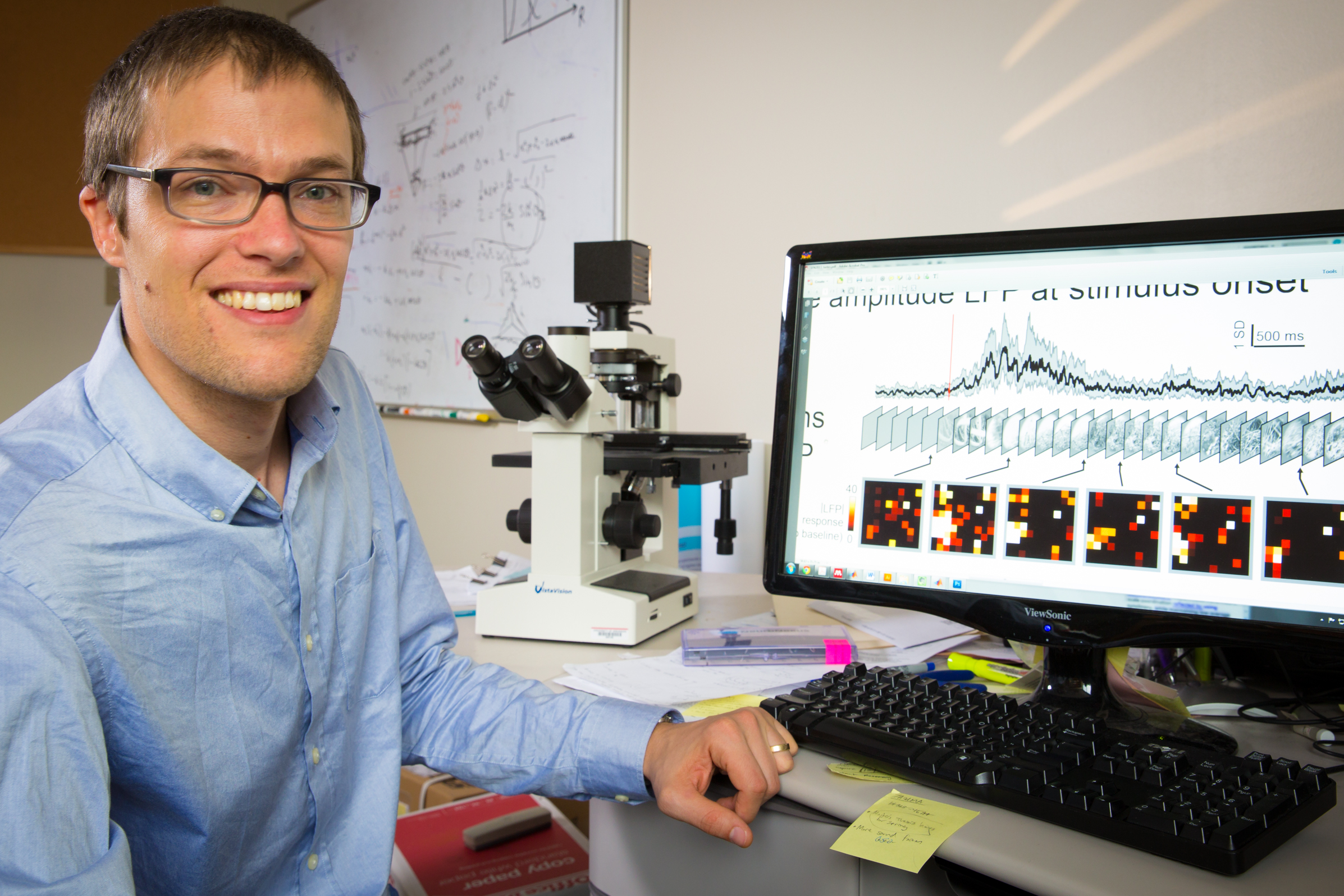FAYETTEVILLE — As a neurophysicist, Woodrow Shew is intrigued by how the brain processes information, particularly the way the brain’s neural circuits process information.
“My research is a hybrid of physics and neuroscience,” said Shew, an assistant professor of physics in the J. William Fulbright College of Arts and Sciences. “I’m interested in how a network of neurons processes information. Neurons are simple and interact according to simple rules. When amazingly complex phenomena such as perception and behavior emerge from such simple interactions — it appeals to a physicist.”
Shew, whose work is featured in the December 2013 issue of The Arkansas Catalyst, conducted postdoctoral research in neuroscience at the National Institutes of Health before coming to the University of Arkansas in January 2012. The experiments in his lab currently focus on the biophysics of the brain including neural network dynamics, neural phase transitions, and cerebral blood flow dynamics.
“The conceptual simplicity of neurons is well suited to physics theory, but often the predictions made by physics theorists are never tested. This is because biologists don’t have the training to understand the predictions and physics theorists don’t have the training to do biology experiments. My lab and my training fill that gap – we understand the predictions and carefully design experiments to test them in real brains.
“In the brain, the basic elements are the nerve cells: the neurons,” he said. “A neuron is like a binary bit in a computer. It is firing little electrical impulses that travel down wires that connect each neuron to each other. Those little pulse-like signals are like on-off signals, and that kind of simplicity is well-suited to physics theory.
The National Science Foundation has awarded Shew a $361,347, three-year grant for a collaborative research project with biophysicist Ralf Wessel at Washington University in St. Louis. The scientists and their research teams will investigate how turtle brains process visual information.
“It’s surprising how much similarity there is from one brain to another, even across species,” Shew said. “The turtle has parts of its brain that are analogous to the human brain early in our evolution. If we find similarities in how a turtle brain processes visual information compared to a mammal, we are establishing general principles about how a brain works across species. General principles are what get physicists really excited and have the potential to advance fundamental understanding of neuroscience.”
Contacts
Woodrow Shew, assistant professor
Physics
479-575-2506, shew@uark.edu
Chris Branam, research communications writer/editor
University Relations
479-575-4737,
cwbranam@uark.edu
